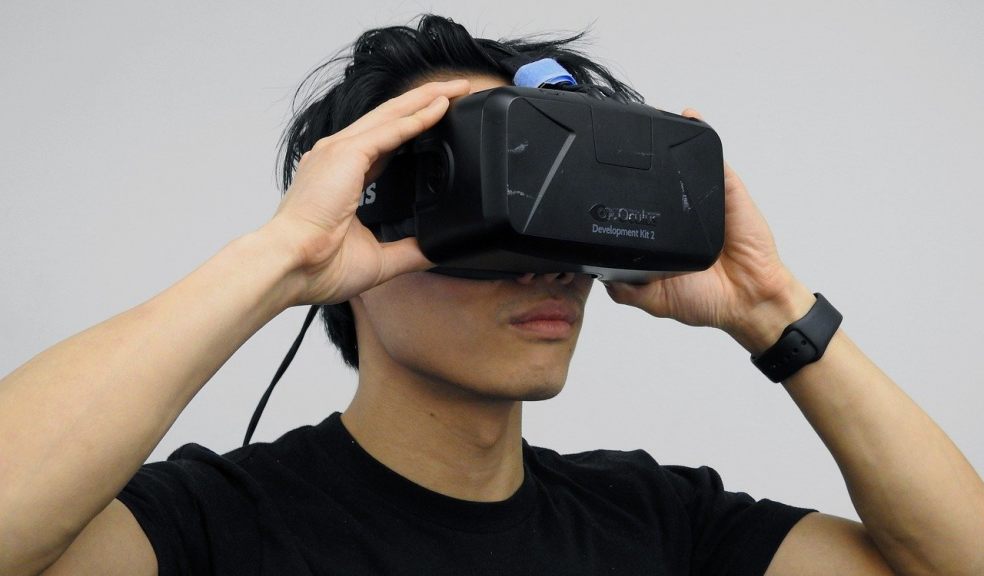
How virtual reality Is changing the entertainment industry
Virtual reality has tried to integrate into entertainment at the end of the last century. Then the massive distribution of VR was prevented by technical problems with implementation. The main disadvantage was the inability to take data from the vestibular apparatus and transmit realistic sensations to it. And, of course, the high price slowed down the process a lot. However, the successes achieved in the field of video-audio presence have opened up many prospects for virtual reality. Now there is a new wave of VR adoption in a variety of areas. How are companies using technology?
Sport
In traditional sports, VR is also just beginning to be mastered. The National Basketball Association (NBA) and Major League of Baseball (MLB) broadcast their competitions in VR, but for a successful virtual visit to the stadium, the user's computer must be powerful, and the Internet must be fast and smooth. Verizon Operator has already tested the Super Bowl in the United States over 5G networks. The 5G ubiquity could boost virtual reality in sports.
VR technologies will not only help make sports competitions more spectacular, but will also accelerate the industry growth introducing it into the qualifying and training process. It is easier and cheaper to select new players in virtual reality, rather than using a scout network. Teaching them the opponents techniques is more effective with full immersion. In addition, analytic systems can track athletes' VR movements and provide feedback on training performance. VR will help to improve the sporting events quality, which means that the audience and the market will grow.
Esports
Esports is a segment that in many ways propels the entire gaming industry forward. The total prize pool for Dota 2 tournaments exceeds $ 181 million. In 2018, analysts predicted that VR and esports will become the two fastest growing entertainment markets in the next five years. And in part, these forecasts have already been confirmed.
It would seem that combining virtual reality with esports is a logical step. Players will be able to fully immerse in the game, and spectators at esports tournaments can watch the competition right from the thick of the action. Corporations are already preparing for changes: Oculus VR (owned by Facebook) has created a gaming headset for the Oculus Quest virtual reality helmet, and Sony has patented a platform for watching competitions in virtual reality. VR companies enter the market through streaming services like Twitch. TribeXR, for example, opened its DJ school there.
However, VR is still in its infancy as an esports discipline. The development of virtual reality in gaming will be facilitated by the industry development as a whole: soon users will be able to play the most demanding games to the computer technical characteristics right on the phone, using 5G and cloud services.
Gambling
Gambling operators saw the same opportunities in VR as representatives from the sports world. With the help of special glasses and a headset, everyone can enter a virtual or quite real (filmed from different angles) game hall and join the game.
Some land-based casinos have already launched games that are streamed in virtual reality. You can connect to them from any corner of the planet where there is Internet. Naturally, such innovations are of interest to players, said Darren Keane, Storm International CEO. So in the near future, we should expect the development of this direction.
Art
About 400 thousand people "went" to the concert of violinist Lindsay Stirling, while the largest concert hall in the United States can accommodate only 21 thousand people. How did it happen? Almost all viewers watched the concert in virtual reality glasses, although some simply turned on the broadcast in 2D.
VR has already entered the art industry. In September 2019, singer Bjork announced the release of her first music album with videos created in VR. The virtual film Flesh and Sand, which tells the story of Mexican migrants, won an Oscar in 2017. Museums regularly hold exhibitions using virtual reality.
So far, VR has changed the experience of visiting exhibitions, but not their concepts. The proliferation of VR can lead to the destruction of the established patterns of content consumption. Director Steven Spielberg warns, for example, that in the future, viewers will be able to control film plots and influence scripts.
Amusement parks
It seems that the transfer of amusement parks to VR is the next stage of the market development. If now there are only 10 thousand VR parks in the world, then within five years in each world's megacities (Moscow, New York, London, Berlin and others) there will be at least 100 such parks. But that doesn't mean virtual parks will kill off-line entertainment - it's just a new multi-billion market segment.
Quarantine gave impetus to VR development
The 2020 quarantine was a major impetus for the virtual reality development. As we know, many places, primarily entertainment ones, have been closed. If VR equipment had become more widespread at this point, the problem would not have been so acute, said Michael Boettcher, Shangri La founder.
Now, many serious companies are thinking about using virtual reality in real entertainment complexes so that customers can access and visit the virtual space.




















